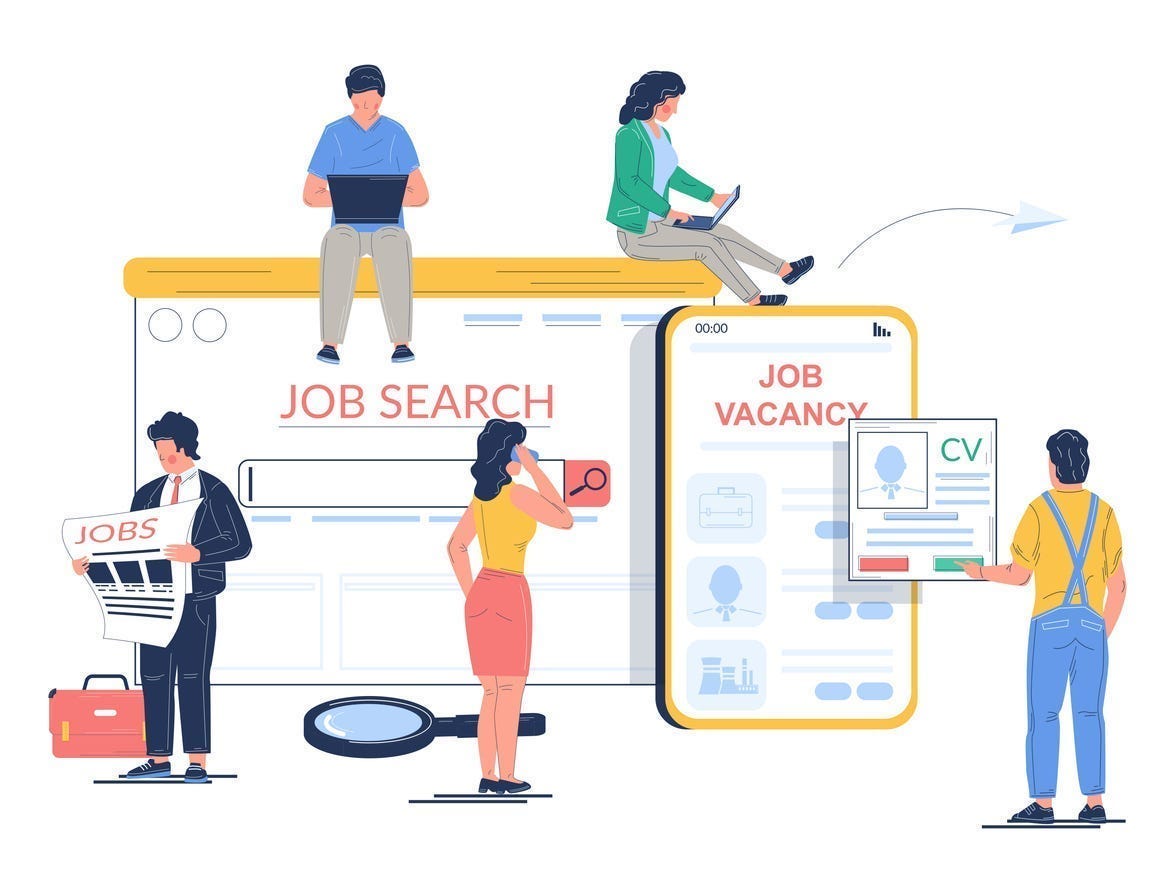Even when you’re a perfect (or almost perfect) candidate for a job, it can be easy to make a mistake during an interview that can cost you the position. If you mess up, it most likely won’t matter how qualified you are. This is a competitive job market, and unfortunately, employers don’t often give second chances.
That’s why it’s important to be mindful of what you say and do during the interview because the wrong words or phrases can knock you out of contention for the job. Not taking the time to learn about the company or complaining about your previous employers can also be issues.
Preparing in advance, keeping it positive, and showing the employer why you're the best candidate for the role, will help you make the best impression on everyone you meet and avoid glitches that could cost you a job offer.
Here are some common mistakes job seekers make during the job interview process and what you can say or do instead to make a positive impression.
The Worst Job Interview Mistake
Being dishonest is one of the worst mistakes you can make during a job interview. It can make the interview process more stressful and come back to haunt you down the road, even if you get the job.
There's a good chance that you'll get caught if you lie or exaggerate your qualifications or experience. Not only will this damage your reputation and credibility, but it can also cost you a job offer and lead to termination if you get hired. Not telling the truth during an interview is grounds for termination from employment.
Even if you get hired based on false information, you will likely struggle in the role, as you won't have the necessary skills or knowledge to perform well. In the long run, being honest and upfront about your qualifications and experience is always the best policy, as it helps build trust and credibility with potential employers.
Most important is to be truthful about your skills and experience during the interview process. Helping the interviewer determine that you're the right candidate for the job will benefit you and the employer.
More Job Interview Mistakes To Avoid
In addition to not being honest, other mistakes can hinder your chances of getting hired, including the following:
Before the Interview
Being late or unprepared. Showing up late or unprepared can create a negative impression right from the beginning. To avoid this, arrive on time, dress appropriately, and bring an extra copy of your resume and a list of references. Spend some time getting ready for the interview so you're prepared to ace it.
Not making sure your technology is in order. When you have a remote interview, ensure all your technology is working so you don't have any last-minute glitches connecting with the interviewer. If your interview is on Zoom, you can try a test meeting to make sure everything is set.
Not learning about the company. Not researching the company before the interview can signal a lack of interest or initiative. Instead, research the company ahead of time and have questions and comments demonstrating your knowledge and enthusiasm ready to ask.
During the Interview
Not showing how you’re qualified for the job. One of the most important things you can do during an interview is to show the hiring manager why you are a fit for the job you’re applying for. Match your qualifications, skills, experience, and education to those listed in the job requirements.
Memorizing your answers. While preparing for common interview questions is important, giving overly rehearsed answers can come across as robotic or insincere. Instead, practice your responses enough to feel confident but be flexible enough to adapt to the specific context and tone of the conversation.
Complaining about your previous employer(s). Even if you had a terrible experience, avoid bad-mouthing your prior companies, as the interviewer may think you aren’t a team player. Criticizing past employers or coworkers can make you seem unprofessional and difficult to work with. Instead, focus on your achievements, skills, and how your experience can contribute to the company. For example, you can say, "I learned a lot at my previous job, and I'm excited to continue to learn and grow with a new company."
Saying you don't have any weaknesses. Every person has weaknesses, and acknowledging them will show the interviewer that you have self-awareness and are willing to learn and improve. For example, you can say, "One of my weaknesses is time management, but I've been taking steps to improve this by using productivity tools such as automated schedules and task lists." Do be sure that the weakness you share isn’t critical for success on the job.
Asking about money too soon. Asking about the compensation package too early in the interview process may give the impression that you are more interested in the money than the job or the company. Instead, focus on your qualifications, skills, and how you can add value to the company. If the interviewer brings up the salary first, you can then provide your expected salary based on market rates.
Being too casual or informal with your language. Your tone and language style should be professional, concise, and articulate. Using slang, jargon, or too many fillers such as "like," "um," or "you know" will give the image that you lack professionalism. Instead, practice speaking in clear, confident, and concise language.
Not asking questions. Failing to ask questions can signal a lack of interest or engagement. Instead, prepare a few thoughtful questions in advance and be willing to ask follow-up questions based on the interviewer's responses.
After the Interview
Forgetting to follow up with a thank-you message. After your interview, following up with a professional thank-you note is important, reiterating your interest in the job and how you can add value to the company. A thank-you note will show the interviewer you are serious about the job.
Reduce Interview Stress
Interviewing can be a nerve-wracking and stressful experience. However, taking the time to prepare and being mindful of what you say can increase your chances of getting hired. These free online interview practice tools will help you ensure you’re ready.
The more aware you are of what you shouldn't say and do during a job interview, the more you can focus on impressing the interviewer and showing them how you can help the company.
Believe in yourself and your skills, be professional and confident, and ace that interview!
Our Favorite Tools & Tips
Your State Job Bank: Every state has a job bank where job seekers can post their resumes and search for jobs. Employers can post jobs for free, so you may find jobs that aren't posted elsewhere. That can be especially helpful when more companies are requiring employees to come back to work in the office. Here's a directory of state job banks so you can quickly access resources for job seekers in your location.
Avoid LinkedIn Job Scams: If you’re worried about getting scammed on LinkedIn, you are right to be. There are more scams than ever, and some of them are so sophisticated that it’s hard to tell they aren’t real. Here’s what to watch for and how to avoid getting scammed on LinkedIn. Also check out these tips for how to tell if a job posting is a scam.
How-To Guide: Switch Careers: Are you interested in exploring new career options? CareerOneStop offers a six-step guide to help you identify a new career focus and prepare to search for jobs in your new field. The guide includes a worksheet you can use to track your progress.
News & Noteworthy
Companies Are Hiring for the Holidays: If you’re in between jobs or looking to earn some cash, companies are starting to hire for holiday season jobs. Challenger, Grey & Christmas reports that retailers are expected to add 520,000 new jobs, including Target, which plans to add 100,000 seasonal workers. UPS is planning on hiring 125,000 extra workers this season. Amazon is hiring too and increasing wages for hourly employees. One of the best ways to apply for seasonal jobs is directly on the company’s website. You can also add “seasonal” or “holiday” to your queries when you’re searching online.
Finding Love on LinkedIn: We were a little surprised to find out that a DatingNews.com survey reports that 52% of all respondents have arranged dates on networking platforms, while 61% of respondents in the 35-40 age group said they preferred LinkedIn or other networking apps over blind dates (54%), dating websites (50%), social events (45%), bars and clubs (44%), gyms and fitness centers (41%), cafes and restaurants (41%), and work events (40%).
Heading Back to the Office (or Not): Amazon is requiring corporate employees to be back in the office full-time starting in January. The change will impact over 350,000 employees who will have to spend five days a week in the office. With the goal of operating like the world’s largest startup, Amazon also plans to reduce the number of meetings and increase the number of employees who report to each manager. Many Amazon employees aren’t on board with the change. CNBC reports that a survey of Amazon employees on the job review site Blind reported that 73% said they are considering looking for a new job.
Sponsored by Remotive
When you’re looking for a 100% remote job, Remotive can expedite your search, and the basic version (2,000+ jobs) is free. Learn more about how Remotive can accelerate your job search, and sign up for the Remotive Accelerator to access over 30,000 listings and the Slack community for a one-time fee.




